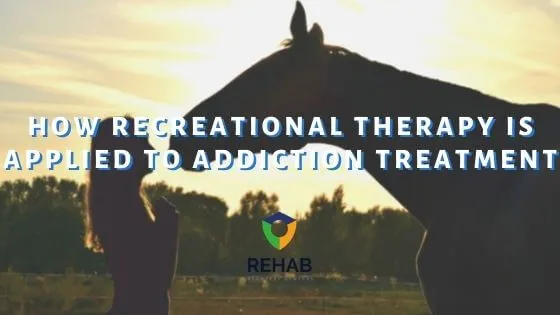Table of Contents
Addiction is a disease that affects the mind, body, and spirit, which is why there are so many different types of therapies offered at drug and alcohol rehab programs. One lesser-known method is known as recreational therapy. Recreational therapy for addiction treatment involves a variety of different activities, such as hiking, yoga, music, art, kayaking, and more. These activities, when applied in a setting under the supervision of a recreation therapist, can help improve the physical, mental, and emotional health of patients.
This type of therapy is not meant to be a substitute for traditional addiction treatment therapies, such as behavioral therapy and medication-assisted treatment. Instead, it is meant to be a supplemental form of treatment for substance use disorder. Moreover, recreational therapy is most effective when combined with a complete addiction treatment program. When combined with other methods, recreational therapy can help bring underlying emotions to the surface, build resilience, help people cope with cravings, and much more.
Recreational Therapy is Becoming Increasingly Popular for Addiction Treatment
The earliest applications of recreational therapies, also known as therapeutic recreation or adventure therapy, date back to the early 1900s. However, they weren’t usually used in addiction treatment until the late 1980s after the American Therapeutic Recreation Association (ATRA) was formed. ATRA set the guiding principles and standards for this type of care, allowing for the rapid growth of therapeutic recreation.
Today, there are nearly 19,000 recreational therapists across the country and this therapy continues to grow. It may be applied at addiction treatment facilities, inpatient or outpatient settings, community living situations, and more.
Recreational therapy is extremely diverse, making it easy to provide unique therapies that target each patient’s specific needs. Treatment plans are designed to restore and rehabilitate a person so that they gain independence, better health, and thought processes. As a whole, recreational therapy is an effective approach to addiction treatment and other conditions including anxiety, depression, eating disorders, behavior disorders, anger management, grief and loss, and childhood trauma.
The Benefits of Using Recreational Therapy in Addiction Treatment
Therapeutic recreation is thought to help improve social, emotional, spiritual, physical, and cognitive functioning to allow people to live their lives more fully. However, there are many additional benefits of this treatment approach, including:
- Help people learn to trust themselves and others
- Develop team-building, leadership, and problem-solving skills
- Boost self-esteem and self-confidence
- Promote emotional discovery, expression, and healing
- Face fears and difficult emotions without the need to numb them
- Develop a sense of resilience and accomplishment as a result of mental and physical challenges
- Improve motor skills and coordination
- Develop an awareness of strengths, weaknesses, and how to use these in day to day life
- Encourage patients to step outside of their comfort zone
- Reduce a person’s sense of anxiety, depression, stress, or isolation
- Prevent relapse by offering alternative coping skills
- Provide patients with a brief break from behavioral therapy to be active outdoors
When applied to drug and alcohol addiction treatment, recreational therapy introduces participants to activities they may have not tried before. While participating in these activities, people often feel like they are simply having fun, when they are really receiving therapy.
Therapeutic Recreation Activities Used in Substance Abuse Treatment
Most activities used in recreational therapy are outdoor activities, but there are many that can be applied indoor or outdoor. Some popular techniques used include:
- Equine therapy or other animal-assisted therapies
- Arts and crafts
- Adventure therapies including hiking, ropes courses, rock climbing, kayaking, canoeing, fishing, etc.
- Drama or acting
- Music and art therapy
- Dance or movement therapy
- Community events and outings
- Yoga or meditation
- Creative writing such as poetry or journaling
- Sports or games
- Team building exercises
Let’s take a deeper look into these therapies, how they are applied to addiction recovery programs, and how they help people stay sober.
Creative and Expressive Therapies (Art, Music, Drama, and Writing)
These creative therapies encourage people to express their thoughts and feelings in creative and abstract ways. It isn’t always easy to put emotions into words, but these creative outlets give people a place to cope with their feelings and express themselves. Creative therapies are highly effective in treating stress, grief, loss, and trauma as they help provide insight into a person’s emotions.
Meditation or Yoga Therapy
Meditation and yoga therapies have been used for hundreds of years and have a variety of mental, emotional, spiritual, and physical health benefits. These relaxation methods are great for stress reduction and coping with cravings as well as reducing pain, headaches, and depression.
Animal-Assisted Therapy
The most common type of animal-assisted therapy is equine therapy – a method that involves interactions between horses and people. These interactions may include feeding, grooming, haltering, riding, and more. This therapy is shown to help depression, anxiety, mental health conditions, and substance abuse.
Adventure Therapies
Adventure therapies, such as hiking, biking, kayaking, ziplining, and more are great physical outlets for people in recovery. These therapies are proven effective in treating anxiety, depression, stress, anger management, and childhood trauma. Adventure therapy can also promote team-building skills, communication, motor skills, and coordination.
Find an Addiction Treatment Center that Offers Recreational Therapy Today
When applied in combination with evidence-based addiction treatment therapies, recreational therapy is a great asset for people in recovery. Between helping you deal with your physical withdrawal symptoms to improving your mental and emotional health, therapeutic recreation serves many benefits.
If you or a loved one are ready to get started on your journey to recovery, recreational therapy can help you stay sober. Contact us today to locate a drug and alcohol rehab near you.
Get Help Today
Don’t go through the process of recovery alone. There are people who can help you with the struggle you’re facing. Get in touch with one today.


